If you read Part 1 of this article you would see the documents required to bring to Morocco for marriage for the Moroccan marriage. Now let’s continue assuming you have brought the appropriate documents. I will try to explain the quickest and simplest way to complete this process. This is also assuming your embassy is in Rabat. If you had a difficult time to receive the documents to bring to Morocco unfortunately this stage is even more difficult in my humble opinion. Your going to find yourself doing a lot of running around in this part of the Moroccan marriage process Assuming your embassy is in Rabat(if your embassy is not in Rabat leave a comment below and I can help you with another plan of collecting the appropriate documents), you will need to firstly collect some documents in Rabat.
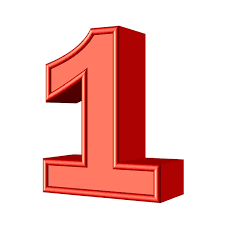 The first thing you will need to do is acquire 2 documents which are the Capacite de Marriage and the Attestation de Nationalte. These documents will be available at your embassy. I would suggest trying to contact your embassy to see if they require any additional document for you. In Canada they require a letter explaining your intentions to marry your fiancé. The letter should contain your name, your birth date, your place of birth, your current address, your marital status and your passport number. It should also contain your finance’s name, date of birth, address and National Identification card number. The letter should be in French and notarized. This is a requirement for the Canadian embassy, other embassies may have different requirements. Another point that I would like to make about the Canadian embassy is that they take 2 business days to send you these two documents. So, if you request them on a Monday morning, you have to wait until Wednesday afternoon in order to receive these documents. The documents are requested in the mornings and they are picked up in the afternoon. The cost of these documents is about 350 dirhams. You will also need to get a police clearance certificate issued at the Ministry of Justice. When you go there you will need to provide your passport and they will ask you to fill out a sheet of paper. It simply asks for you name, country, date of birth and other information they need. When you submit this paper, they will take it and give you a small piece of paper indicating to come pick up the certificate at 3pm. Note they tell everyone to pick up the paper at 3pm but they do finish earlier as I went at 2:30pm and they were already completed. You may want to go earlier to avoid the rush. When you collect the Capacite de Marriage and the Attestation de Nationalite, you have to have these stamped at the Ministry of Foreign Affairs and Cooperation. The location of this place was a bit strange, I thought I would find a huge government building but in reality, it is an unmarked building. When you enter, explain your situation and they will provide you a number and direct you upstairs to the waiting area where you wait for your number to be called. When they call your number, go up to the counter, provide the documents and they will stamp them for you. The cost is 80 dirhams. Once this is complete, you are completed the first hurdle in Morocco. I suggest you try to acquire the documents as early as possible. What I did was I acquired the Moroccan police clearance the same day as I requested the Capacite de Marriage and the Attestation de Nationalite. When I collected these documents, two days later.
The first thing you will need to do is acquire 2 documents which are the Capacite de Marriage and the Attestation de Nationalte. These documents will be available at your embassy. I would suggest trying to contact your embassy to see if they require any additional document for you. In Canada they require a letter explaining your intentions to marry your fiancé. The letter should contain your name, your birth date, your place of birth, your current address, your marital status and your passport number. It should also contain your finance’s name, date of birth, address and National Identification card number. The letter should be in French and notarized. This is a requirement for the Canadian embassy, other embassies may have different requirements. Another point that I would like to make about the Canadian embassy is that they take 2 business days to send you these two documents. So, if you request them on a Monday morning, you have to wait until Wednesday afternoon in order to receive these documents. The documents are requested in the mornings and they are picked up in the afternoon. The cost of these documents is about 350 dirhams. You will also need to get a police clearance certificate issued at the Ministry of Justice. When you go there you will need to provide your passport and they will ask you to fill out a sheet of paper. It simply asks for you name, country, date of birth and other information they need. When you submit this paper, they will take it and give you a small piece of paper indicating to come pick up the certificate at 3pm. Note they tell everyone to pick up the paper at 3pm but they do finish earlier as I went at 2:30pm and they were already completed. You may want to go earlier to avoid the rush. When you collect the Capacite de Marriage and the Attestation de Nationalite, you have to have these stamped at the Ministry of Foreign Affairs and Cooperation. The location of this place was a bit strange, I thought I would find a huge government building but in reality, it is an unmarked building. When you enter, explain your situation and they will provide you a number and direct you upstairs to the waiting area where you wait for your number to be called. When they call your number, go up to the counter, provide the documents and they will stamp them for you. The cost is 80 dirhams. Once this is complete, you are completed the first hurdle in Morocco. I suggest you try to acquire the documents as early as possible. What I did was I acquired the Moroccan police clearance the same day as I requested the Capacite de Marriage and the Attestation de Nationalite. When I collected these documents, two days later.
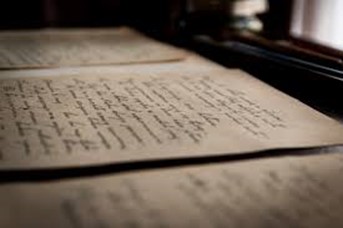 After collecting the documents in Rabat, the next step in the Moroccan marriage is to submit a letter to the family court of you spouses city/town. Every man has to write a letter to the family court requesting marriage to his future wife. If you are a man from outside of Morocco, this letter has to be written in Arabic. I was lucky enough that the woman making photocopies was kind enough to write the letter for me.
After collecting the documents in Rabat, the next step in the Moroccan marriage is to submit a letter to the family court of you spouses city/town. Every man has to write a letter to the family court requesting marriage to his future wife. If you are a man from outside of Morocco, this letter has to be written in Arabic. I was lucky enough that the woman making photocopies was kind enough to write the letter for me.

You will then need to visit a doctor in Morocco to get a “medical check”. I put quotes around the medical check because from my experience and also stories I heard, this is just a formality and the doctor will just write on a form that you are healthy. The price of this varies from 100-200 dirhams. I got them stamped and notarized at the Ministry of Foreign Affairs and Cooperation right after.
The next step is to get your documents you brought from your home country translated to Arabic. Your future spouse can help you to find a translator in the city of your Moroccan marriage. The price of translating 
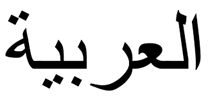 your documents can vary between cities but they range from 800 – 2000 dirhams. When these documents are translated and have the documents acquired in Morocco, you will have 1 set of documents, you will have to photocopy this set 6 times.
your documents can vary between cities but they range from 800 – 2000 dirhams. When these documents are translated and have the documents acquired in Morocco, you will have 1 set of documents, you will have to photocopy this set 6 times.
Now you are ready to go to the court to request marriage. Be prepared these courthouses will be busy so try really hard to go early. When you arrive, there should be a person who can direct you to who you need to speak to. In my situation, there was a police officer also acting as a receptionist and he directed us to a man who took one set of our documents and reviewed them. Although we had all the required documents, this man still had an issue with my religious document. My wife had to speak with him for a while and eventually they came to an understanding (which involved money). This is a topic I can speak about another day. Eventually they will call your name and you will sit in front of a judge who will review your documents and speak to you (if you speak arabic). If you do not, it is no problem as they will then only speak to your spouse. The judge will approve your request and then some administrators will print some forms for you to sign. Once these are signed, your next stop is the police station.
At the police station you need to see some administrators who will take 1 one set of the documents review them and then provide you with a form that they have written. You add this form to another set of documents and head over to the ministry of Internal affairs.
This ministry will provide you a form which you need to get signed and notarized by the police and the ministry of registry (sorry I don’t remember the exact name, but they are responsible for the registration of marriages). At the police station, you will have to speak to a detective about your marriage, he will ask questions and then sign and stamp your form. Once the forms are are signed and stamped you need to return to the ministry of Internal affairs and they will collect a set of documents and then provide you with some other forms that you will have to send to the police again.
At this stage you may be frustrated because of the amount of times you have to return to the same place. I know I was frustrated but don’t worry you’re almost done. When returning to the police station you will need to get the forms signed by a special police officer. I don’t know his exact title but I believe he is a representative to the King. I was told that you have to be interviewed by him but in my situation, he just signed and stamped the forms. After this you return to the family court with a set of documents. They will provide another document for you, which will be signed by you and your spouse.
Finally, you will be visiting the Adul. This is the very last step of the Moroccan marriage process. The Adul will take a set of documents (by this time, you will have given him the final set of documents), and then speak to you about the marriage you are about to partake in. If you cannot understand Arabic, you will need a translator. As my Arabic is very basic, I needed a translator and luckily the Adul knew someone that could help me. I had to pay this person 200 dirhams for his service. After this, the Adul writes your marriage contract and you are then officially married.
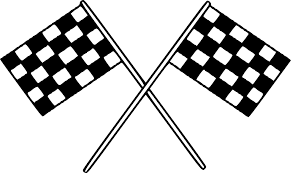
The morocan marriage especially for foreigners is a very complex and stressful process. The travelling and dealing with people can become overwhelming. A Lot of times people will be hinting that they want you to pay them. For me I was very frustrated with the back and forth travelling between courts and police stations and other places. Try to keep patient, it is not an easy task but eventually you will be finished with this process. As I mentioned before, not all cities will operate the same way, some may ask for more or may ask for less, this is just an overview of my experience with the hope it can give an idea of what to expect. Always ask your spouse to find out about the procedures in their hometown before you arrive in Morocco.
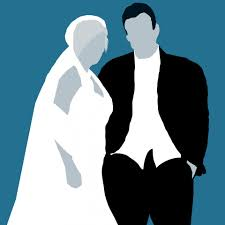
Thank you for sharing your experience, Hamza!
Could you please specify, if in the paragraph (the one under the image of police) describing frequent visits between police and different institutions, by “ministry of Internal Affairs” you meant the Ministry of Interior in Rabat or your local town institution? We are from a far city (Agadir) and are concerned it may mean traveling to Rabat multiple times to get this done.
Thank you very much!
This is the local police station. I’m your situation this would be in Agadir. You’re going to need to visit Rabat to get a document from the ministry of interior in Rabat (I thought it was called ministry of justice) as well. The strategy should be to get all your documents from Rabat and then return to Agadir to complete the process. I had to visit Rabat twice because some of the documents took a few days to prepare but this can depend on the embassy. If you need any more help let me know. Good luck!